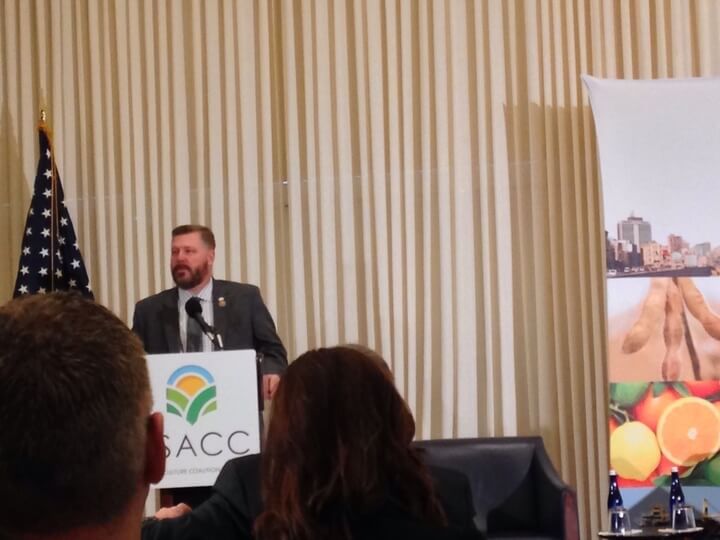WASHINGTON — An agricultural coalition is urging Congress to promote free trade with Cuba by lifting the 55-year-old trade embargo by the end of this year.
President Barack Obama has already lifted the ban on travel to Cuba, made licenses to export commodities easier to obtain and reopened the U.S. embassy in Havana. Yet even though Cuba is no longer on the list of state sponsors of international terrorism, Cold War economic sanctions are still in place, which can only be thawed by Congress.
The U.S. Agriculture Coalition for Cuba, a group with more than 30 agriculture companies and organizations, was launched last year as a vehicle to hopefully nudge Congress toward officially normalizing relations between the two countries.
Rep. Rick Crawford, R-Ark. said at a coalition conference that while Cuba can get a shipment of rice from Vietnam in 36 days, the U.S. can expedite the food in 36 hours with higher quality produce, benefitting both parties.
“We fought a long war with Vietnam, and we trade with them. China has egregious human rights and we find a way to trade with them,” Crawford said. “We are punishing ourselves here.”
Even though Obama’s easing has boosted U.S. exports, Cuba would account for less than 1 percent of American trade markets, according to Sen. Heidi Heitkamp, D-N.D. The U.S. dollar is also currently strong, which would make exports less appealing to foreign buyers like Cuba.
Heitkamp called the embargo lift “symbolic more than anything else”.
“When I went to a meeting in Cuba, the U.S. was the only one who didn’t show up,” Heitkamp said. “What’s the message that we want to send to Latin America who, by the way, is a huge agricultural market?”
However, while the U.N. condemned the embargo for the 24th year in a row, Congress appears to be split. Senate Majority Leader Mitch McConnell has hinted that the Republican-controlled Congress will not support anti-embargo bills. Former Speaker John Boehner refused to address the issue in the chamber until he saw Cuba making reforms.
Cuba needs to allow independent labor unions, respect human rights, commit to free and fair elections and release all political prisoners for an embargo lift, according to the 1962 document signed by President John F. Kennedy.
Pundits say that an embargo lift is a surrender to Cuba, as the country has not met all those requirements, according to Crawford. “We’re not hurting the Castro regime though, we’re hurting the Cuban people,” said Crawford.
Last year, Heitkamp and Sen. John Boozman, R-Ark., successfully passed a bill to make it easier for U.S. exporters to offer financing to support agricultural exports to Cuba. U.S. Companies and banks are still not allowed to provide credit for exports to Cuban farmers and cash is required up front, which is the “biggest barrier” when it comes to trying to export to Cuba. Heitkamp said the next step is fighting for credit to “level the playing field in North Dakota and across the country”.
“I don’t expect the embargo to be lifted before the new president is elected,” Heitkamp said. “But we can pass incremental bits of legislation along the way and eventually make this happen.”

